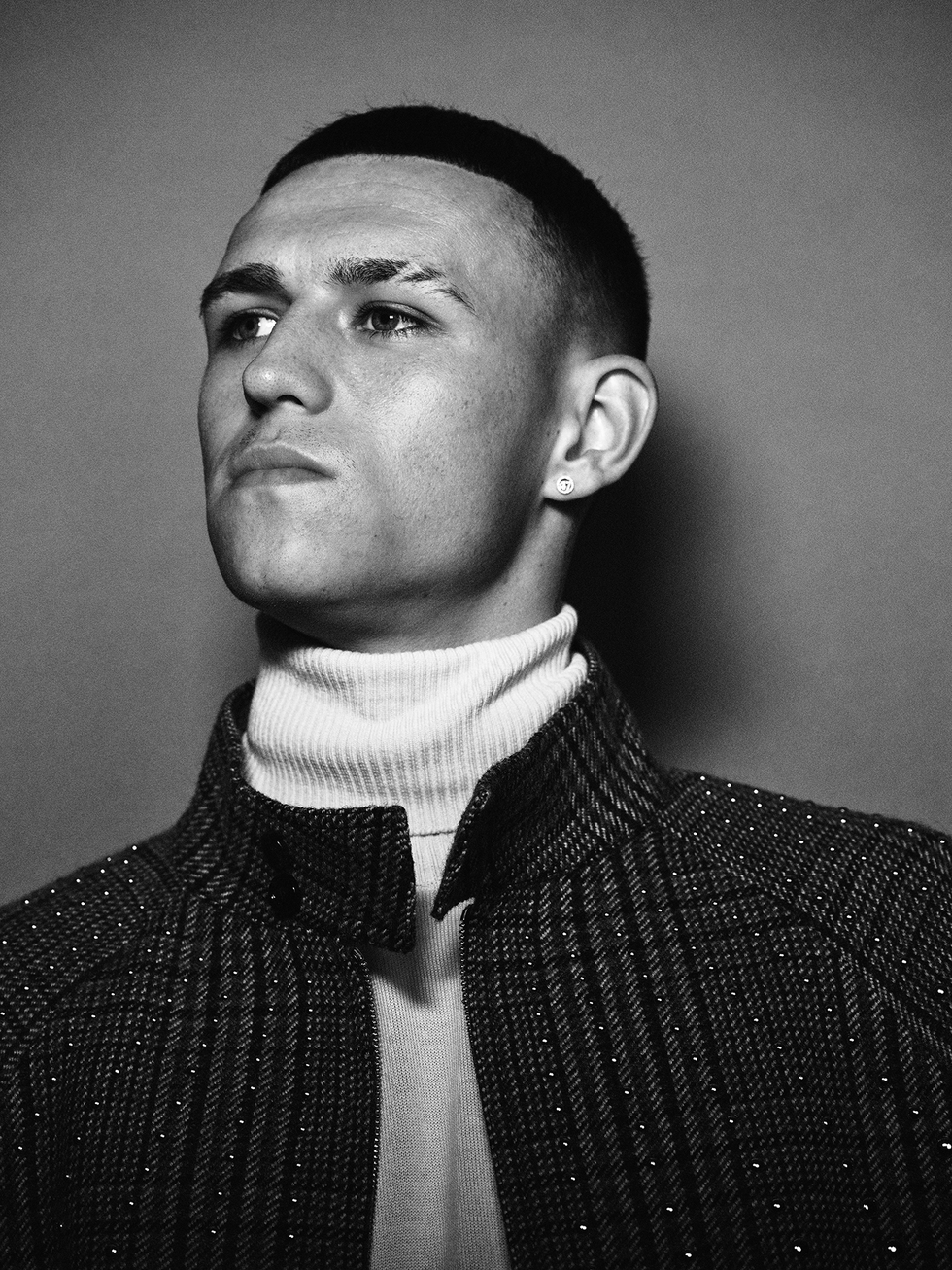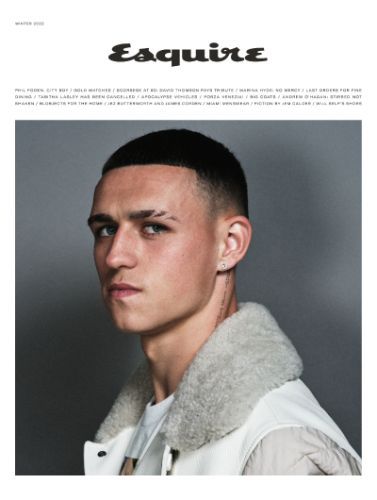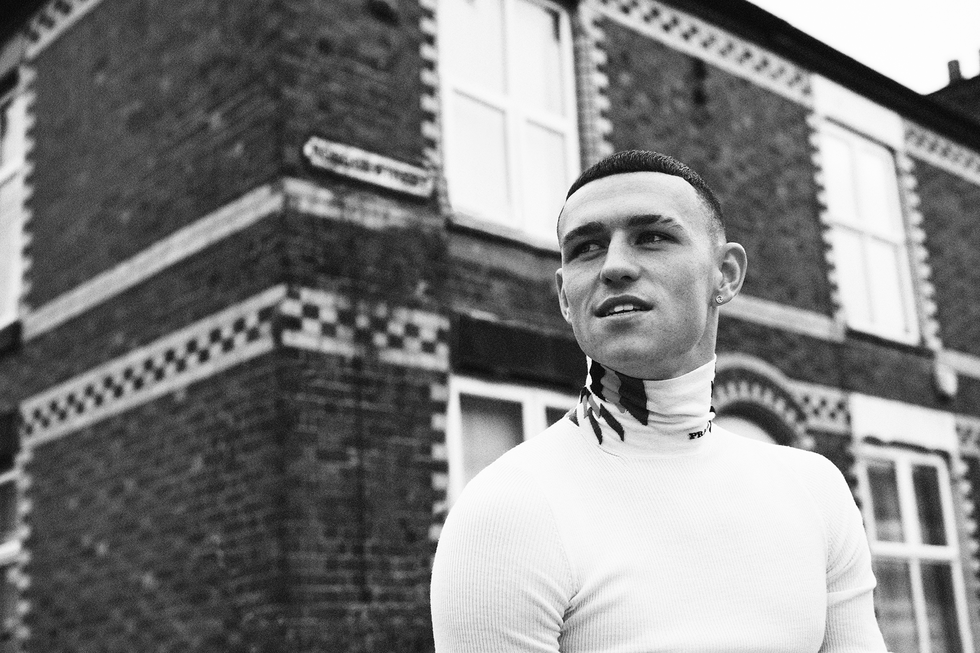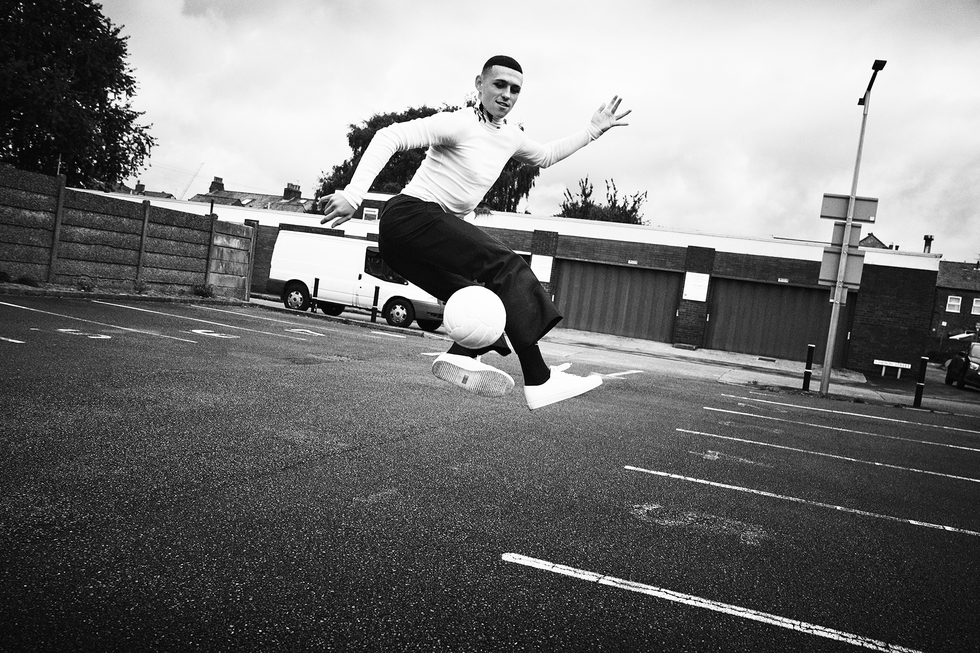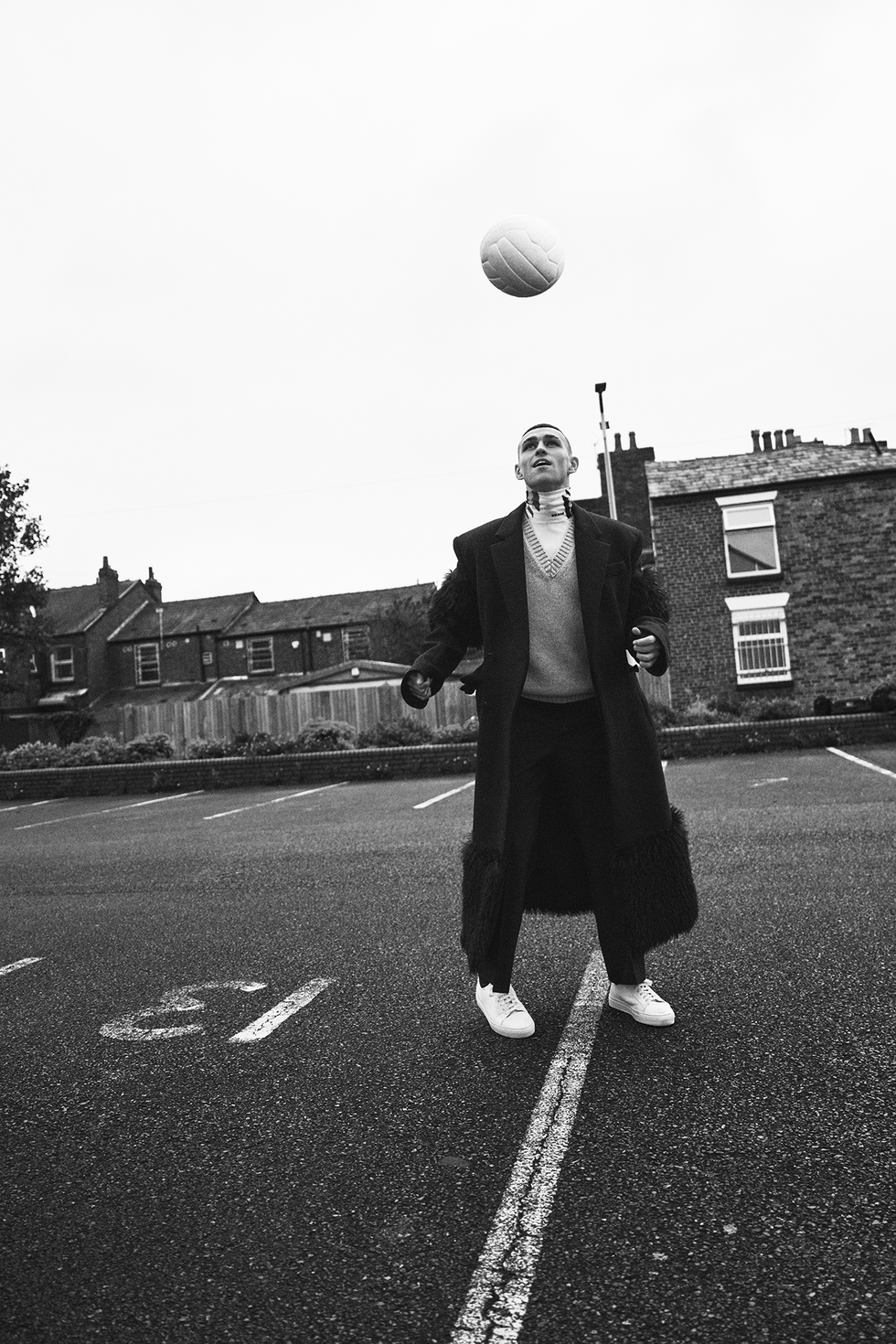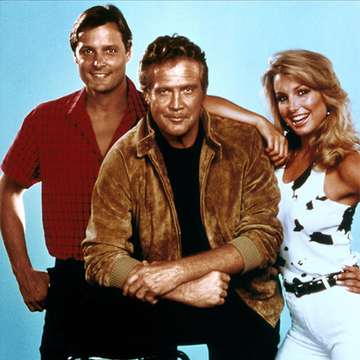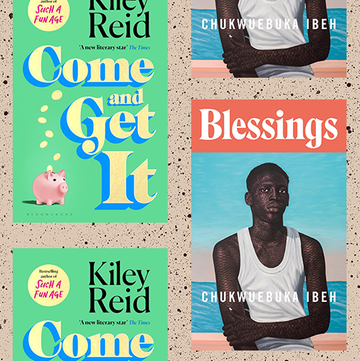Occasionally — by which I mean hardly ever — you get it right, and look clever, or at least vaguely competent. Mostly, that doesn’t happen, and you look as clueless as the next overdressed magazine editing chump.
At the risk of letting light in on the magic, to paraphrase Bagehot on the monarchy (not the most apposite analogy, granted), the choice of who makes the cover of a magazine is rarely that, exactly. It’s not a choice so much as a negotiated surrender. A compromise, on both sides. The editor (in the case of Esquire, that is me) has a hit list of actors/singers/models/whatevers and he or she or one of his or her staff approaches each in turn, badgering their respective representatives (who have their own list of preferred media outlets, which they too are furiously scoring out as they go) until someone, exhausted, gives in and says yes.
Sometimes, it’s a special someone from the top of the list, who you’ve been stalking for years, more in hope than expectation. That feels good. It’s the kind of scoop that causes other editors to be so consumed with envy that they must be escorted from their offices and placed under extreme sedation, lest they do damage to themselves or others.
Sometimes, it’s a sandwich. (Jan/Feb 2020, look it up. Proud of that one, actually.)
In the ancient olde worlde of print media (2016?) there were a handful of nailed-on dead certs who you knew would fly off the shelves, whatever project they were promoting. There’s a reason you see (or saw) the same people on magazine covers and talk shows and in your social media feeds, over and over again. It’s because they sell (or sold).
Mostly, in today’s “media environment” (ick), people aren’t bothered quite so much by who’s on the cover of each issue of a print magazine. Times have changed, the culture has changed, fame has changed, the media has changed, magazines have changed, you have changed, I have changed.
People are either interested in Esquire and what we have to offer (thank you, wise choice), or they’re not (suit yourselves). This gives us more leeway to experiment with the covers. Not just by photographing convenience food — although I reserve the right to repeat the trick if a particularly attractive hot cake comes along. In the past few years, we’ve had a photo of an empty aeroplane cabin, for a travel issue. And a painting of a young man in his front room for our fiction issue. This summer we had Elvis Presley, who died in 1977.
I enjoyed all of those, and I hope others did, too. But I’ve been wrangling celebrities (mostly living) for two decades, and I still get a kick out of — shoptalk alert — the “get”: strong-arming the perfect famous person on to the perfect cover at the perfect moment. As I say, it happens seldom enough that I feel that when it does, I owe it to myself to celebrate.
This backslapping does not follow me home. For the most part, my kids take little to no interest in what I do for a living, and rightly so: they are 13 and 10 years old, Esquire is not aimed at them, I’m a bumbling figure of fun, it’s all boring, shut up and get out of the way we’re trying to watch Wednesday.
Once or twice, no more, I have brought home with me an issue of Esquire that has met with a flicker of interest rather than a shrug of disdain. Benedict Cumberbatch was a popular choice. Not popular enough for anyone in my house to actually pick the thing up and read it, but Sherlock was my daughter’s lockdown obsession, so at least I wasn’t laughed at when I dropped it on the coffee table, next to her feet. I think she might even have turned her head very slightly, to look at it. Then muttered a monotone, noncommittal endorsement. (“Slay.”)
Tom Hardy, too, elicited a grunt of approval — he’s Venom, so she’s aware of his work — and she was not entirely unfussed when she discovered I’d met Rihanna. And Emma Watson. And Eminem! But then, she wasn’t especially fussed, either. Penelope won’t be impressed until I get Taylor Swift on the cover. (Come on Taylor, help me out here.)
The only celebrities that Oscar is remotely interested in are footballers. In that department, despite having had, over the years, many of the game’s biggest stars on the cover of Esquire (Messi, Beckham, Bale, Pogba, Kane, etc) I have not always covered myself in glory. My timing has often been questionable. Beckham, to pick just one example, was my choice of cover star for the London Olympics, in 2012. He didn’t even make the squad.
For Euro 2020, I was thrilled to have secured a world exclusive shoot and interview with Kylian Mbappe, the breakout superstar of the 2018 World Cup, widely regarded as the most exciting attacking player of his generation. The photos were taken in Paris by an A-list photographer, Nathaniel Goldberg, and the brilliant Simon Kuper, of the Financial Times, agreed to write the piece. Mbappe looked stylish in Dior, he gave Simon a thoughtful interview, I was chuffed with the results.
As a fan, I wanted England to win the tournament. As an editor, I hoped for France to triumph, with Mbappe scoring a hat-trick in the final. Instead, the French disappointed. Knocked out in the last 16, they let their public down, they let themselves down, and worst of all, they let me down. Mbappe failed to score in any of their four games and missed the decisive fifth penalty against Switzerland that saw les Bleus sent packing. My coup had come to nothing. Oscar found this very funny. He said I looked like “a dummy”.
This time, I was determined to prove myself — to the readers of Esquire, to Oscar, and most importantly, to myself.
Phil Foden is the sensationally gifted Manchester City winger with the world at his Nikes. In September, I went to Stockport, Foden’s hometown, with one of my all-time favourite photographers, Simon Emmett, and a team from Esquire, to take Foden’s picture and interview him for our Winter cover. We spent a day with him, we went to the house where he grew up, we visited the car park where he first learnt to kick a ball, we met his grandmother, we had top bantz with his people.
I was feeling pretty full of myself until I talked to Foden himself about the World Cup. He was cagey. He didn’t want to speculate about what might happen because he might not get selected, or he might get injured. You never know, he said. Anything can happen. He didn’t want to be a hostage to fortune, or seem presumptuous. But I already was a hostage to fortune, and I already had been presumptuous. I had presumed he would be selected, I had presumed he would stay injury-free, I had presumed he would play, and score, and win. I begged him not to even mention the possibility that any of this might not happen. In my mind’s eye I could see Oscar’s ruthless grin. He was mouthing the word “dummy”.
For England’s first match, against Iran, Foden started on the bench. Manager Gareth Southgate preferred Raheem Sterling. Christ, I thought, this is no good. What the hell is Sterling doing in the team? He’s been totally out of form at Chelsea! Mason Mount was selected ahead of Foden. Mason Mount! WTF? So was Bukayo Saka.
Minus Foden, England started strongly and just kept getting better. They were scoring for fun. At last sparing my blushes, and forcing Oscar to wind his little neck in for a moment, Foden came on for the last twenty minutes, when the win was already in the bag. By then, Jude Bellingham, who is even younger than Foden, had scored. Sterling had scored. Saka had scored two. Foden’s fellow subs, Marcus Rashford and Jack Grealish, also scored. Foden played well, but he did not score.
While others may have been cheering on England in general, or willing on whichever player was on the ball and looking likely to score, your correspondent was more focussed in his energy. “Come on, Phil, shoot!” I shouted, every time he was in possession, even if in his own half. “Pass it to Phil!” I screamed, any time any other player — even an Iranian — got near the ball.
Oscar found this annoying. Embarrassing. Possibly even tragic. He wanted to know why I hadn’t put Saka on the cover. Or Bellingham. Or Grealish. Shut up, Oscar, I said. You’re not helping.
For the second group game, an enervating no-score snore draw against the USA, Foden didn’t play at all. This seemed bad, very bad, at the time. I watched that match through gritted teeth, fuming that Southgate didn’t know what he was doing, aghast when he brought on Rashford and Grealish and Jordan Henderson — Jordan Henderson! — to try to break the deadlock, but no sign of Phil. Don’t say it, Osc. Why hadn’t I put Henderson on the cover? He said it.
I shouldn’t have been so gloomy. Because England were so woeful against America, a groundswell of loud and sometimes even informed opinion began to agitate for the inclusion of Foden. Irascible TV pundits (thank you, Roy Keane), chin-stroking broadsheet sportswriters, the online commentariat and your mate who knows more about football than you were all united: Foden must play!
I seldom agree with Piers Morgan on anything but the headline on the front page of the Sun trailing his column on the morning after the USA game played right into my hands: “PIERS: ‘Get a grip Gareth… play Foden every game!’” I took a photo of it and showed it to Oscar, to prove I wasn’t alone. “Who’s Piers Morgan?” he said. (That’s my boy.)
I should, of course, say that all this played into Esquire’s hands, rather than mine alone, but this felt personal. It was my call to put Foden on the cover. I’d chosen the photographer and the stylist and the location and come up with the idea, and even done the interview myself. Only I, I felt, could win or lose based solely on Foden’s performance. I needed help, and only Foden himself could provide it — frustratingly, he needed Southgate’s permission for that. (I need help in other ways, too, but they have medication for that.)
For the third game, against Wales, the sun came out on my modest patch of west London. Foden was in the team from the start, and he played like a dream. England won, 3-0. Foden scored the second. Joy on the Bilmes sofa was unconfined. Beer was spilt. Air was punched. Curse words were bellowed. (Close your ears, Oscar.) Trouble was — for me, and only me — that Marcus Rashford scored the first goal, a spectacular free kick, and he scored the third. Rashford was the hero. His was a story of redemption after his penalty miss in the Euro 2020 final and subsequent loss of form for Man Utd. He got all the headlines. Foden was best supporting attacker, but he wasn’t the lead.
Shouldn’t I have put Rashford on the cover? Oscar gave me a look that said as much. No one wants to be pitied. Especially not by a 10-year-old.
But then, brilliant news — for me, and only me! Rashford was dropped for the first knockout game, against Senegal. Yes, Gareth! Now the team had started to gel. Foden and Saka out wide, Kane in the middle. Jude Bellingham pulling the strings in midfield. We won handily, 3-0, Phil got two assists and played like the world class wunderkind that I and all readers of Esquire know he is. OK, yes, granted, this time Bellingham dominated the post-match coverage, for a masterful performance in the middle. But even Oscar had to admit things were looking up — for Phil and, as a result, for me. “Better than when you did Mbappe,” he agreed, not bothering to smother another laugh.
On Saturday night, Oscar and I will sit down together to watch the quarter final, in which England will take on France. Or, in my case, Phil Foden will take on Kylian Mbappe.
Come on, Phil! Make me look clever. Make me look vaguely competent.
You can do it!
